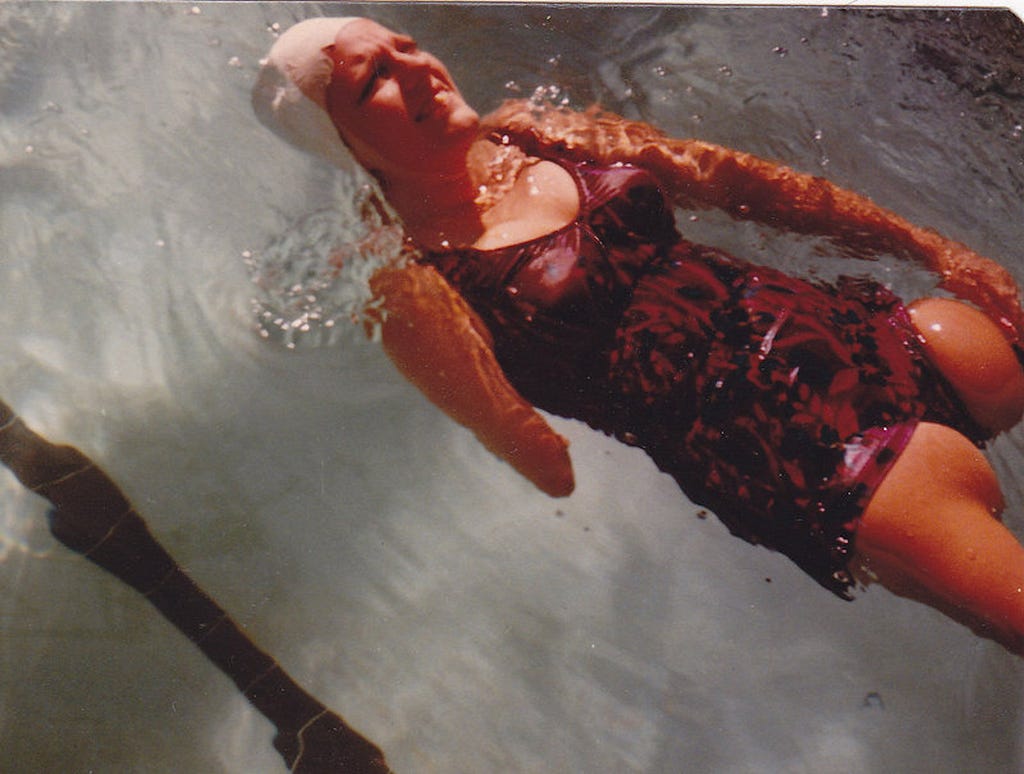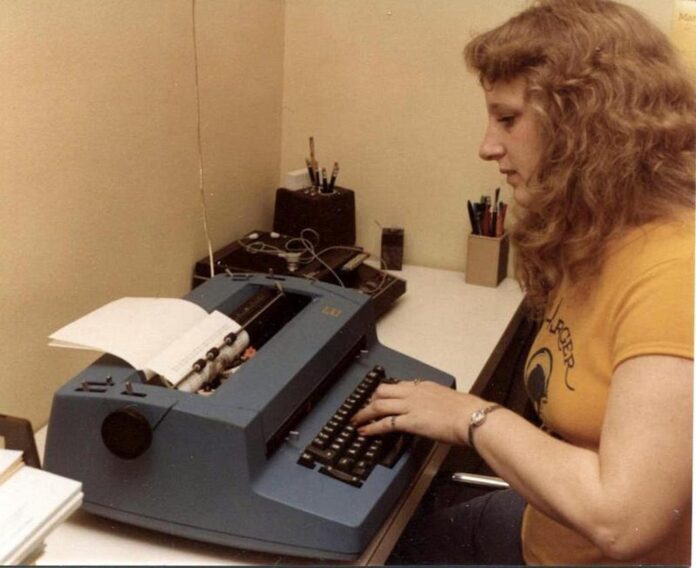Unstoppable: How Monica Sucha Vickers Has Redefined Success While Navigating Society As A Triple Amputee
They have a meaningful life despite what may look bad.
As a part of our “Unstoppable” series, we had the pleasure of interviewing Monica Sucha Vickers.
Monica is the multiple award-winning author of My Extraordinary Life, a beautifully penned memoir about her life as a triple amputee. Despite her disability, Monica lived a happy, fulfilling life, accomplishing things as if she were “normal.” She graduated from high school, went to college and found a job as a medical transcriptionist. She worked in this field for 40+ years as a transcriptionist, proofer, business owner, mentor, quality coach and instructor. Her story is a true testament to her indomitable spirit of courage and determination, showcasing what it means to live a life of purpose, inspiration, and ultimately, thrive against all odds.
Thank you so much for doing this with us! It is really an honor. Our readers would love to get to know you a bit better. Can you share your “backstory” with us?
I was born in Kansas in 1954. I was born missing both legs and my right arm, likely the result of thalidomide. I was raised in Nebraska, graduated from Syracuse High School in 1972 and from the University of Nebraska-Lincoln in 1976. I traveled from Nebraska to California after college and found a job as a medical transcriptionist one month later. I worked in the medical transcription field for 40+ years as a transcriptionist, proofer, business owner, mentor, quality coach and instructor. I retired in late 2014. I married my husband, Mike, in 1989.
Do you feel comfortable sharing with us the story surrounding how you became disabled or became ill?
I was born this way as a triple amputee. It was thought, but not confirmed, that this was the result of thalidomide.
What mental shift did you make to not let that “stop you”?
I never had a thought about “not stopping.” It was just expected by my parents that I do the same things/chores as my 6 siblings.
Can you tell our readers about the accomplishments you have been able to make despite your disability or illness?
After a discussion of possible placement in a home for disabled kids, my parents ultimately decided to bring me home. From there, my life mimics the “usual, customary, and ordinary” life of most children. I achieved the usual milestones of childhood, elementary school, high school, college, young adulthood, securing a job, and marriage. I don’t recall noticing much about my physical difference (since it impacted virtually nothing I wanted to do) until about age 20. At that time, I entered the public world, job interviews, dating, etc. and suddenly my physical differences began to have an impact.
What advice would you give to other people who have disabilities or limitations?
This is the story of my life from birth through childhood, artificial limbs, surgeries, high school, college, employment, dating, marriage, and everything in between. There are discussions on what not to do when you meet a disabled person and how to react when children awkwardly point. I offer some observations on how to get through days that are not so fun. This book will show readers how living with disability is simply a lifestyle — it doesn’t make one courageous, brave, or heroic. Disabled people are very good at knowing what they can and cannot do. Knowing these limitations helps one look at the bright side of things and make life meaningful and useful. Readers will learn how to embrace life’s trials and pains because, quite simply, there really is no alternative. This book evokes the true meaning of hope and endurance. It also expresses positivity and acceptance.
In an interview with 10-year-olds, I first quickly dispelled the notion that disabled people inherently need help. I told them to treat disabled people just as they would anyone else and never to just automatically assume that help was needed. If someone needs help, they will ask. Assuming that help is needed based on looks alone is rude and demeaning.
Next I approached the question, “How do they do things?” I told them that disabled people are real people and that they are experts at adapting. I explained using an example of the meaning of adapt — like the blind not reading with their eyes but with their fingers. The important thing is that they can read. It would be wrong to assume they couldn’t read just because they couldn’t see. Doing things differently might take longer to do, but the disabled almost always find a way. While some things may look hard to able-bodied people, many times, it’s not hard at all for the disabled person. The kids were noticeably surprised when I told them all the things I could do, things that weren’t so hard at all for me. I explained that they should never make assumptions about anyone ever based on how they look, no matter if they are disabled or not. Slowly, their uneasiness melted away and they began to understand that I was not that mysterious at all.
Kids are my favorite audience. From this experience, I realized that my efforts are best focused on the younger population because teaching them young is the best way for future changes in adult behavior.
None of us are able to achieve success without some help along the way. Is there a particular person who you are grateful towards who helped get you to where you are?
I spent many summers with my grandmother. She was very supportive. Later as I reflected on her influence, it was as if everything I touched turned to gold in her eyes. When I was about 10, she urged me to write a book. I asked her about what, and she said it should be about my life. I saw nothing sparkling about my life at that time but I promised her I would write the book. As an adult, this promise was always in my head, and when I was writing it, I then figured out why she thought it was necessary.
How have you used your success to bring goodness to the world?
Living my life as an “ordinary” person was my goal. I never wanted any glory or accolades. I saw nothing different in what I was doing than what others were doing. Of course, now I see a difference but I hope to influence people by just living my life.

Can you share “5 things I wish people understood or knew about people with physical limitations” and why.
1 . They are not helpless.
2 . They do not need help unless they ask, just like anyone else.
3 . They have a meaningful life despite what may look bad.
4 . They do not need any pity. This is very demeaning.
5 . When children ask or stare, be honest — don’t whisk them away.
Can you please give us your favorite “Life Lesson Quote”?
From an Easter Seals poster, I once saw a picture of a hand and an artificial hook shaking hands. The caption was something like, “The worst thing about a disability is that people see it before they see you.”
We are very blessed that some of the biggest names in Business, VC funding, Sports, and Entertainment read this column. Is there a person in the world, or in the US whom you would love to have a private breakfast or lunch with, and why? He or she might just see this 🙂
I would love to meet Carol Burnett.
Thank you so much for the time you spent with this interview. We wish you continued success and good health!
Unstoppable: How Monica Sucha Vickers Has Redefined Success While Navigating Society As A Triple… was originally published in Authority Magazine on Medium, where people are continuing the conversation by highlighting and responding to this story.


